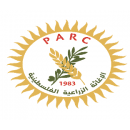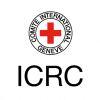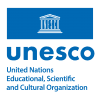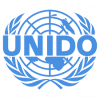External Evaluation Component B under the Resilience and Eco...
External Evaluation Component B under the Resilience and Economic Growth in Gaza Strip in the Agricultural Sector 2020-2023 Program
Open for National and International Consultants (Firms and Individuals)
About Agricultural Development Association (PARC)
PARC is a national developmental non-governmental organization that has been established 42 – years ago. PARC strives to develop the agricultural sector, strengthen the resilience of farmers, reach out to the poor and marginalized groups and their CBO’s, mobilize and develop the capabilities of rural people to enable them to control their resources, through the work of a distinguished professional teams and a loyal volunteer. This has been accomplished through creative programs and transparent management and through technical practices to contribute to the establishment of a free and democratic Palestinian society with the values of social justice. PARC has extensive experience to link resilience to development in context of Palestine in the agricultural sector; economic resilience, economic empowerment, disaster risk reduction and management with pioneering introduction of the building back better to the infrastructure of the agricultural sector. PARC also is well known to the pioneering adaptation of the green economy application and to line ICT to agriculture to improve production and farms resilience. With almost 4 decades of experience in the agricultural sector, PARC is the considered the largest national agricultural NGO with an annual outreach of 90,000 farmers and a strong track record in different value chains in both plant production and livestock value chain development.
Objective of the Evaluation:
The primary objective of the evaluation of the phase A was to assess the relevance, effectiveness, efficiency, impact, and sustainability of the project. Through comprehensive analysis, this evaluation aims at planning to establish a robust understanding of the program efforts, ensuring accountability to its stakeholders, and paving the way for better-informed future components of Phase II Program.
This evaluation is also intended to serve as a learning tool, offering insights for enhanced programmatic strategies in the agricultural sector, especially in the challenging context of the Gaza Strip. In order to assure this specific approach, the consortium has designed a dual process, developed in an overlapping way,
Evaluation Period:
1.5 Months (From November 2024 to December 2024)
Location:
Gaza Strip
Methodology
COMPONENT B EVALUATION
The evaluation is expected to be both collaborative and participatory, leveraging a mix of both quantitative and qualitative data to address the evaluation questions.
The evaluation's framework should encompass the following:
- Overarching Measurement: the consultant should be familiar with the project overall and specific objectives. Which is essential in proposing the most suitable data collection techniques to assess each level, integrating both quantitative and qualitative methods. The evaluator will be responsible for crafting and testing the tools that will be used for data collection, making modifications as required.
- Sampling: The consultant is to present a robust sampling design pertinent to the evaluation. These samples should:
- Ensure a significant level of confidence that the results resonate with the target group's experiences and perspectives;
- Provide substantial evidence to deduce the intervention's efficacy in parallel settings;
- Offer comprehensive insights into the success factors and their applicability in similar environments.
Desk Review:
This stage should encompass documents such as the proposal, MEAL plan, logical framework, projects reports, records, publications, pertinent secondary literature studies, and any other relevant materials. The objective of the desk review is not just to list available resources. It should dissect the interconnections and potential gaps in the existing documentation, furnishing the rationale for the evaluation. In essence, the desk review should act as a foundational step, equipping the evaluator with the requisite knowledge for the subsequent phases of tool development and strategic planning.
Data Collection:
Building on the explanatory sequential design, which starts with quantitative data collection and analysis and then follows up with qualitative data collection and analysis, which leads to interpretation. This helps determine what quantitative results need further explanation. The Data Collection Phase will intertwine both quantitative and qualitative methods.
The evaluator will craft specific tools for data collection, such as structured questionnaires, interview guides, and observation checklists. These tools will undergo a piloting process to ensure their relevance and appropriateness. Adjustments will be made based on the pilot findings.
During data collection, there will be active engagement with a variety of stakeholders. This includes project beneficiaries, implementers, local community leaders, and other relevant entities. Their inputs provide multifaceted perspectives on the project's outcomes and processes.
A systematic approach to data management will be adopted to ensure data integrity, confidentiality, and accessibility. Quality assurance mechanisms, like regular debriefings and validation sessions, will be instituted to ensure the data's credibility and reliability.
Data collection tools must use the Logframe as a major input for the themes to be investigated.
Reports:
Both the interim report and the final report will be subject to validation by the partners, through a planned and agreed activity, before being definitely received by PARC on behalf of the partners consortium.
Each group of activities of the internal evaluation will be also duly documented by the external consultant team (pictures, minutes, partial report, whatever agreed with the partners focal point prior to the start of the specific group of activities), and attached as annexes to the final report.
Ethical Protocols:
During the evaluation process, paramount importance will be placed on upholding the rights and dignity of all participants. It is essential that every individual involved is approached with respect and treated with the utmost care. Prior to their involvement, participants will be fully informed of the purpose, nature, and potential implications of the evaluation, ensuring they provide their informed consent. It should be noted that any participant holds the right to withdraw from the evaluation process at any given time, without facing any negative consequences.
In terms of information management, every measure will be taken to ensure the confidentiality of the data provided by the participants. Explicit measures will be adopted to make sure that no data can be traced back to an individual participant, unless they have granted specific permission for this. As a general practice, all personal identifiers will be either removed in the evaluation report and any other related publications. The goal is to ensure anonymity and protect the personal and sensitive information of all involved parties.
Inception Report:
After the initial briefing and preliminary research, the consultancy team should provide an inception report. This report will outline the evaluation approach, the methodologies selected, the data collection tools to be used, and a detailed work plan, including the internal evaluation related activities. The inception report will also highlight any challenges foreseen and propose mitigation strategies.
Data Collection tools:
Prior to fieldwork, the consultancy team should finalize and submit data collection tools, including questionnaires, interview guides, and focus group discussion guides.
Interim Report:
Upon completing the data collection phase, the consultancy team will submit an interim report, summarizing the primary findings, initial insights, and any challenges faced during the data collection.
Draft Evaluation Report:
A comprehensive draft report detailing the findings, analysis, conclusions, and preliminary recommendations. This document will be shared for feedback with key stakeholders.
Final Evaluation Report:
After incorporating feedback, the consultancy team will finalize the report. This document should include an executive summary, detailed findings, lessons learned, recommendations, and annexes (e.g., data collection instruments, list of interviewees, minutes, other evaluation activities).
Presentation to Stakeholders:
A clear, concise, and engaging presentation of key findings and recommendations to the program's stakeholders.
QUALIFICATIONS OF THE CONSULTANCY TEAM
The evaluation team should comprise of the following qualifications and experiences:
Education and Professional Background:
- A master's degree or higher in agriculture, rural development, economics, international development, or a related field.
- Additional training or certification in program evaluation, research methodologies, and data analysis would be an advantage.
Experience:
- A minimum of 8-10 years of professional experience in implementing or evaluating agricultural and economic development programs, preferably in areas of conflict or post-conflict regions.
- Proven track record of conducting evaluations for international organizations or NGOs, especially in the Middle East or in contexts similar to Gaza.
- Familiarity with agricultural value chains, market access dynamics, and gender-sensitive programming.
- Demonstrated experience in the design and execution of both quantitative and qualitative research methodologies.
- Previous involvement in projects focusing on women's empowerment, cooperative groups, or entrepreneurial initiatives in the agricultural sector.
Skills:
- Proficiency in designing, conducting, and analyzing large-scale surveys, interviews, and focus group discussions.
- Strong analytical skills with the capability to draw out insights, trends, and implications from complex datasets.
- Excellent report writing and presentation skills, capable of producing high-quality deliverables that cater to diverse audiences.
- Mastery in using evaluation software and tools, such as SPSS, NVivo, or other related platforms.
Interpersonal Qualities:
- Demonstrated cultural sensitivity and an ability to work efficiently in diverse and challenging environments.
- Effective communication skills with the capacity to engage a range of stakeholders, from community members to high-level officials.
- A collaborative approach to work, facilitating open dialogue, constructive feedback, and a learning-oriented environment.
- Ethical integrity, ensuring that all aspects of the evaluation are conducted with respect for participants, confidentiality, and other ethical considerations.
Language:
- Fluency in English is essential, with the ability to produce reports and communicate findings effectively in both languages.
The consultant should submit a soft copy of the technical and financial offer, noting that the financial offer should be password protected, and only consultants who pass the technical evaluation will be asked to send the password for the financial proposal.
The proposal should be submitted no later than Tuesday, 5th November 2024 CoB. Noting that late applications will not be accepted.
PARC shall not be bound to accept the lowest price or any tender proposal, and reserves the power to accept any part of any tender proposal.
Any clarifications or request for additional technical information should be addressed to
[email protected] no later than 3rd November 2024.
How to apply
Terms of Reference can be obtained by interested parties by contacting the Purchasing Department [email protected] no later than 3rd November 2024.



















